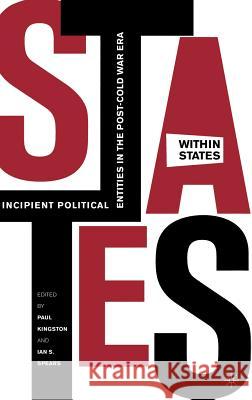States-Within-States: Incipient Political Entities in the Post-Cold War Era » książka
States-Within-States: Incipient Political Entities in the Post-Cold War Era
ISBN-13: 9781403963857 / Angielski / Twarda / 2004 / 202 str.
Many states in the Third World remain fragile and prone to collapse because they face challenges from cohesive groups within their borders. Such groups form ""states-within-states"" having many of the functional characteristics of states-including administrative structures, defined territories, and armed militias-but their status remains contested and unclear. From Colombia to Lebanon, from Iraqi Kurdistan to the Sudan, the contests between central control and regional autonomy often turn violent and pose severe humanitarian challenges problematic to the international community given the norms of sovereignty and non-intervention in domestic affairs. Yet, these conditions have not always given way to anarchy. In some cases, the breakdown of weak and often arbitrary states has given way to more coherent and viable, though not necessarily benevolent, political entities. This book examines the extent to which these sub-units-""states within states""-represent alternatives that the international community could look to in a long-term effort to bring stability, security, and development to peoples in the Third World. This book will be of interest to practitioners and scholars alike in the fields of international relations, conflict resolution and peace-building, and development studies.











